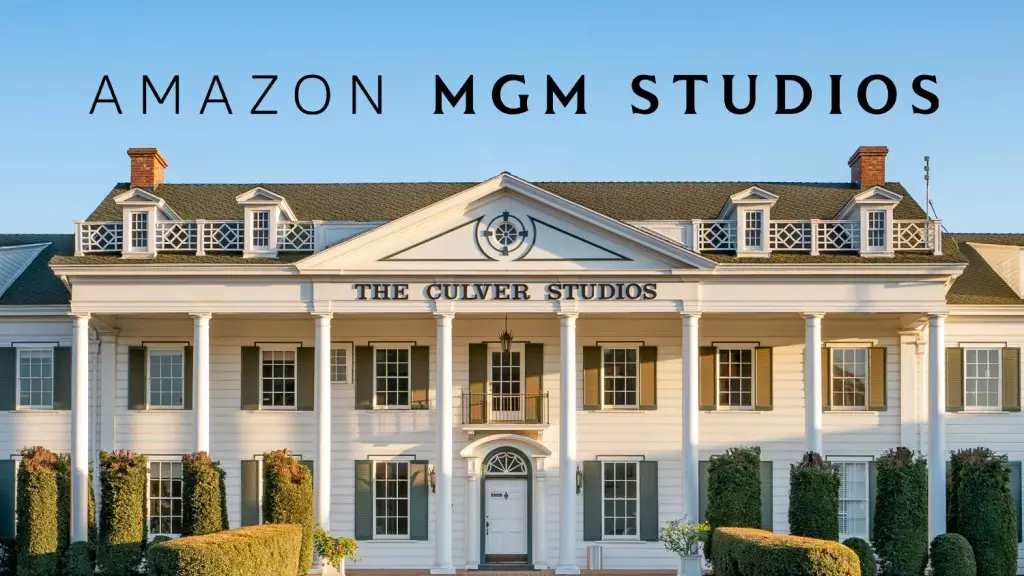In a noteworthy shift within the entertainment industry, Amazon MGM Studios is gearing up for a significant transformation in its approach to international theatrical distribution. Sources suggest that the studio is set to initiate its own distribution division to complement its feature film slate, especially following the conclusion of its existing foreign distribution agreement with Warner Bros. This ambitious move reflects Amazon’s renewed commitment to theatrical releases, especially after its acquisition of MGM, which has allowed the studio to rethink its strategy in an evolving cinematic landscape.
The dissolution of the partnership with Warner Bros. marks a pivotal moment for Amazon MGM Studios. Historically, the studio’s films had relied on Warner Bros. for distribution beyond U.S. borders. Amazon’s decision to establish an independent international distribution arm signals a desire to not only retain more control over its cinematic properties but also to maximize its box-office potential globally. The stakes are especially high for Amazon as it is no longer content to merely produce films; it is now focused on owning the entire lifecycle of film distribution.
Capitalizing on Franchise Potential
One of the most consequential aspects of Amazon’s self-distribution strategy involves its control over major franchise properties, particularly the iconic James Bond series. With reports indicating some tension between Amazon and Bond’s longtime producer Barbara Broccoli, an in-house distribution capability could potentially soothe these concerns. Historically, the last Bond film, “No Time to Die,” was distributed internationally by Universal, raking in a staggering $613.2 million globally. By directly managing the global rollout of future Bond films, Amazon MGM Studios could maximize revenue while enhancing the marketing strategy tailored specifically for the franchise.
Retaining critical MGM marketing veterans like Gerry Rich and Stephen Bruno further strengthens this initiative, as their expertise will be invaluable in crafting targeted and resonant promotional campaigns. Given the franchise’s legacy and cultural significance, Amazon MGM Studios aims to ensure that future Bond films resonate not just domestically but across the international landscape as well.
The studios’ prior experiences with theatrical distribution under the early leadership of Jason Ropell, Ted Hope, and Bob Berney demonstrate a significant shift in philosophy. Initially, the company adopted a more fragmented approach, selling off foreign distribution rights and relying on external partners to manage its titles, including successful releases like “The Big Sick” and “Manchester by the Sea.” However, with the changing dynamics and increasing competition within the entertainment sector, Amazon MGM Studios appears poised to forge a more cohesive and integrated distribution strategy moving forward.
By building a robust infrastructure for international distribution, Amazon MGM Studios aims to streamline operations and bolster its film revenue. With a slate of highly anticipated films such as the action-packed “Mercy,” starring Chris Pratt, and “Masters of the Universe,” directed by Travis Knight, this redevelopment will position the studio as a key player in the global movie market.
Furthermore, projects from acclaimed directors like Luca Guadagnino open doors to varied genres that could appeal to diverse audiences, enhancing the studio’s overall portfolio. The necessity for a comprehensive distribution model is amplified, especially as the box office recovery continues in the wake of the pandemic—an era that has put increased pressure on the necessity for robust distribution frameworks.
Looking ahead, Amazon MGM Studios plans to debut its new distribution capabilities at CinemaCon in April, signifying its entrance as a formidable player in the global stage of cinematic offerings. Although a definitive timeline has yet to be established, reports indicate that the company aspires to operationalize this division by 2026, providing it with ample room to address any kinks within the system before fully launching their international operation.
As the studio prepares for this significant change, it remains pivotal to recognize the balance between creative endeavors and business strategies. While the hopes for increased revenues are paramount, the studio must ensure the artistic integrity of its films remains intact. The evolving landscape of film distribution poses both opportunities and challenges, and only time will tell if Amazon MGM Studios’ strategic pivot into international distribution will yield the anticipated results.
As the dynamics of film production and distribution evolve, Amazon MGM Studios has taken a significant step toward control and ownership of its cinematic futures, promising to reshape the traditional approaches to film in an increasingly competitive market.

